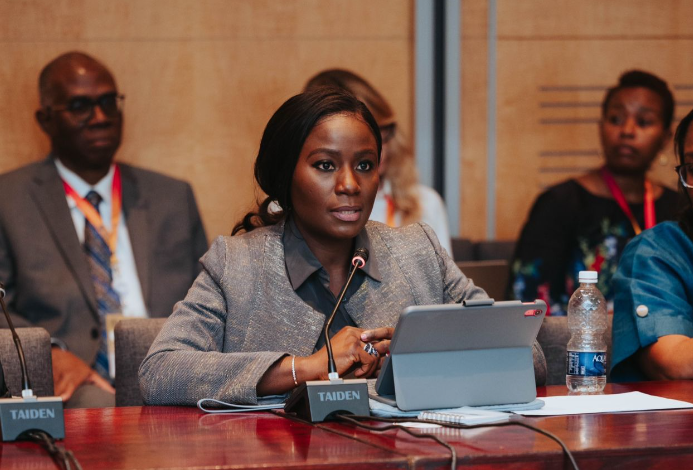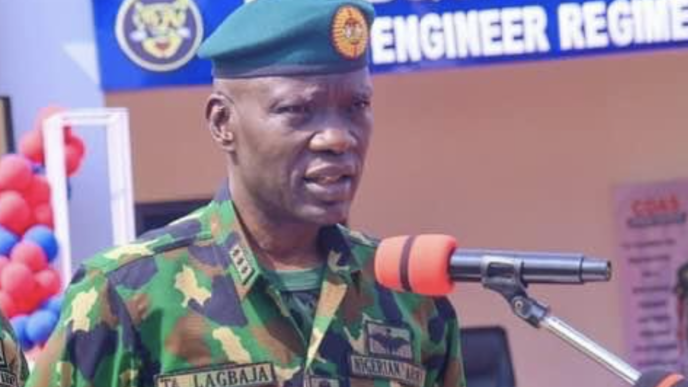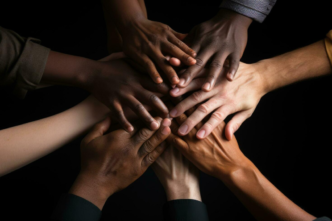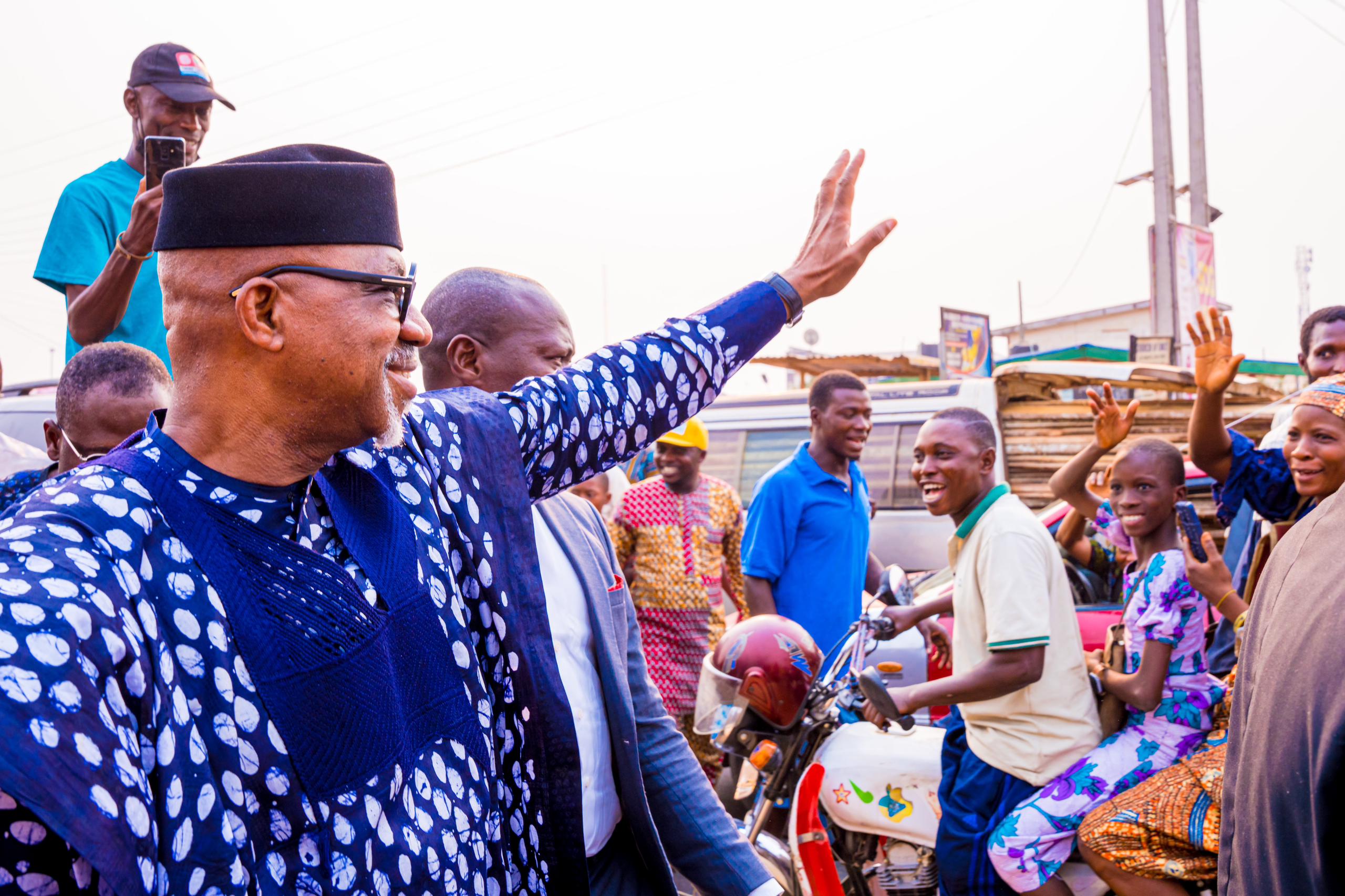BY OLU AROWOLO VERHEIJEN
An address by Olu Arowolo Verheijen, special adviser on energy to the President of Nigeria, at the African Energy Week, Cape Town, South Africa, on November 5, 2024.
It gives me great pleasure to deliver the opening address at this event. I thank the organisers and sponsors for the kind invitation to be with you today, and to share my thoughts on the theme of “The Future of Energy: Shaping the Workforce of Tomorrow.”
As Africans, we are at a point in our developmental process where energy access is critical in shaping the continent’s future. Our resources (including renewables) are abundant, yet over 75% of the population lacks sufficient energy access. As a continent seeking to change this narrative, we must ensure that energy ceases to be the limiting factor in Africa but rather becomes a tool for driving industrialisation and development. One of the ways we can address this is through a productive energy workforce.
Advertisement
There is no doubt that the future we are moving into will be very different from where we are coming and what we are used to. It will take incredible amounts of human energy and a diversity of talent and expertise to enable us to adapt to these rapidly evolving and often unpredictable scenarios and circumstances. In summary: we are the ones who will determine the outcome of the delicate balance between energy security, affordability and sustainability for this continent.
I am here today to make the argument that one of the most important ways in which we can shape tomorrow’s African energy workforce is to look beyond the traditional places and welcome a new crop of talent, especially women, and young people, who possess a global perspective and reach and understand the context of the 21st century, and are equipped with the fresh perspectives and bold energy to design and implement radical new solutions to lingering problems.
While efforts to attract women into STEM and the energy sector are important, attraction alone isn’t enough, retention and advancement to senior levels are equally crucial. The real differentiator for women breaking through from mid-level to executive roles is sponsorship. Women need powerful advocates who actively support their growth and position them for opportunities and ensure their representation at the highest levels. I would like to tell you a story – a personal story – about a bold experiment in Nigeria, that illustrates my argument.
Advertisement
On May 29, 2023, a new president assumed office in Nigeria. His Excellency Bola Ahmed Tinubu, a man known for bold subnational reforms and innovation during his two terms as Governor of Nigeria’s most populous state and largest subnational economy.
He set about building a team. For his energy adviser, a cabinet-level position, he selected me, a young woman, technocrat, with no political ambitions. It was and is a bold experiment in many ways – picking young, female and putting her in the space, and empowering her to be disruptive. The president could have picked a more traditional choice in the Nigerian context: male, older, more political, more government experience.
Let’s face it, I’m not the most likely candidate for such a role in the office of an African president. Previous presidential energy advisers in Nigeria have come from a very different mould. But President Bola Ahmed Tinubu is a man driven to do things differently. You can see this in the bold macroeconomic reforms that have come to define his time thus far in office. He takes this maxim very seriously: “If you want to see different results, you need to do things differently.”
For his all important energy reforms – he bet on a young woman and her team of disruptors, in a sector dominated by men. That’s how I ended up as the special adviser on energy, overseeing the design and coordination of reforms in the oil, gas and power sectors from the president’s office. The president saw my capacity and competence, but even more importantly, he saw that I was a bringing a unique experience, youthful, multifaceted, global, adventurous, disruptive.
Advertisement
I have worked in an international oil company, gone on to manage a pan-African portfolio of renewables investments, sat on the board of a 14-billion-dollar development finance institution with footprints in every developing economy on the planet, among other roles. I have a global perspective, that sees Nigeria not in isolation but in the context of competition for a global pool of funds that can always go elsewhere.
This is a story of sponsorship – a story of a veteran politician who has run Africa’s largest city economy, and is now running Africa’s most populous country. A man who is himself from a professional background in energy, taking a bet on a woman to lead the team to deliver his vision – the boldest energy sector reforms Nigeria has seen in decades. This is about going beyond the usual lip service about inclusiveness and commitment to empowering women and young people, and my team do not take this privilege and opportunity for granted at all.
Because of this landmark bet on us, we are determined and pour everything into to ensuring that this presidency ends up far more consequential in reforming and repositioning Nigeria’s energy sector, than any other presidential administration since democracy returned to Nigeria twenty five years ago. And this is something that many more leaders on the African continent must do, going forward, and with a sense of urgency also. Sponsorship makes a great deal of difference. It is what has allowed male leaders to dominate many leadership positions in public and private sector in Africa today.
It is not because women are less qualified, or less available, or less endowed with what it takes to lead at the highest levels. No. It is simply that men have simply come to enjoy the longstanding serendipity of being more likely to be sponsored into influential positions. It is that simple. And it is now time for women to enjoy equal access to this, to being bet upon, to being given more chances.
Advertisement
As I said, it is not a debate about capacity or competence; women have proven themselves to be just as capable as men, whether in the energy sector or elsewhere. It is against the backdrop I have sketched out above that one must now see what President Bola Ahmed Tinubu has done, creating this opportunity for me to make a difference, and providing the political will and machinery for my team to envision the most ambitious targets one can imagine, and to work hard day in day out to hit those targets.
The future belongs to us so we are driven every moment by a sense of urgency to reshape that future. We are also driven by the desire to not let the president down or leave room for his daring bet to be questioned by anyone. We are doing this work for the president, who campaigned on a vision of reform and renewal, and very importantly, for country. Nigeria cannot afford to continue underperforming against its immense potential.
Advertisement
We are also doing it for the multitudes of women and young people out there, who deserve to be sponsored into positions of impact and influence – who have what it takes to create unprecedented waves of reform. I am keenly aware very that the significance and impact of work will influence whether more people like us get a similar chance in the future.
I will close by outlining some of what our team at the presidency has been able to achieve, within the last 12 months. We developed 5 presidential directives that have (i) clarified the regulatory roles to create an enabling environment for investments (ii) introduced reforms targeted at reducing high operational costs and project execution timelines (iii) introduced a clear set of fiscal incentives to stimulate investments in non-associated gas, deep offshore oil & gas exploration and production, e-mobility and clean cooking. This is the first time that Nigeria is outlining a fiscal framework for deepwater gas since basin exploration commenced in 1991.
Advertisement
Nigeria’s Petroleum Industry Act took twenty years to be passed into law and given presidential assent, in 2021. We are now building on that foundation with an unprecedented sense of urgency, to completely rewrite the narrative of oil and gas investment in Nigeria. We are already seeing the fruit of our work. Regulatory approvals are being expedited, major investment decisions are being finalised across the value chain.
We have unlocked over $1 billion in investments across the value chain and by the middle of 2025 we expect to see final investment decisions on two more projects, including a multibillion billion-dollar deepwater exploration project, which will be the first of its kind in Nigeria in over a decade – one of many to come. We see the abundant opportunities that lie ahead. We see a Nigeria that is a leading global producer and exporter of energy – whether its fossil fuels or renewables. We are not held back by the outdated approaches and assumptions of the past. We are open, daring, and eager to leave a legacy that will stand the test of time.
Advertisement
I will always be grateful to President Bola Ahmed Tinubu for giving me this opportunity, and I intend to pay it forward, in all the ways that I can, for multitudes of young women out there just waiting in the wings for their own chance to show what they are capable of doing. I hope that in every country across Africa, these stories will be replicated, and the gender gaps that have come to define our landscape will be aggressively narrowed and closed. There is no doubt that the continent will be the better for it. Bringing the perspectives, capacity and the energy of its women, who make up half of the population, into the mix, is a requirement for building the Africa of our dreams.
Views expressed by contributors are strictly personal and not of TheCable.
Add a comment










